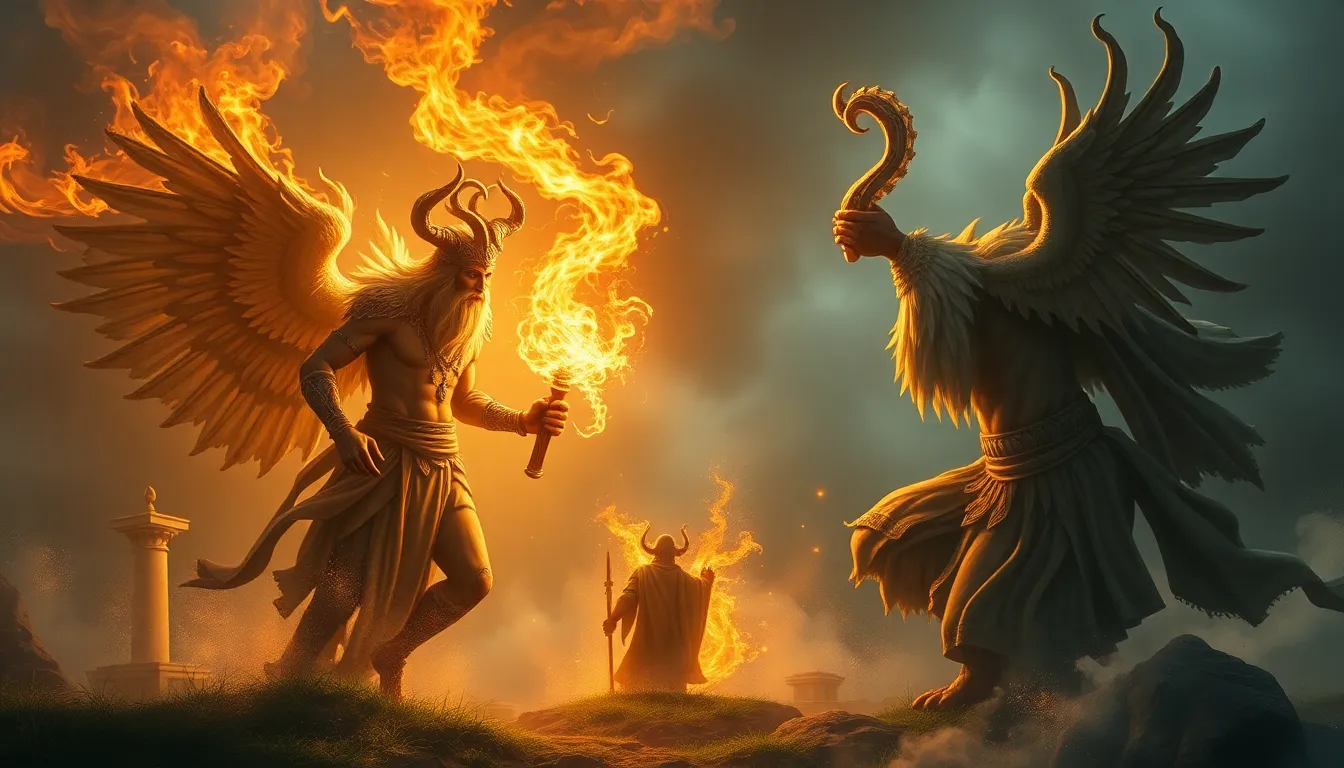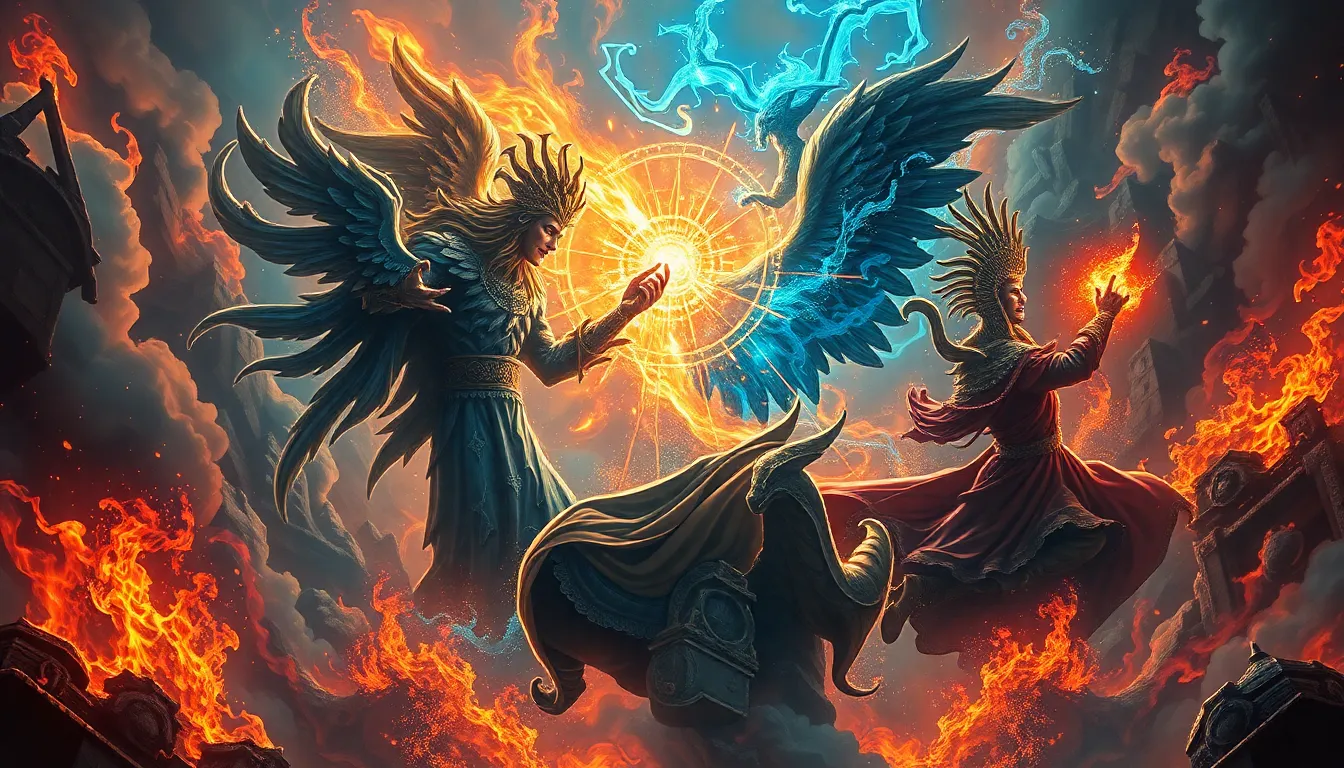Cultural Heroes: The Myths That Inspire Generosity and Kindness
I. Introduction
Cultural heroes are figures who embody the values, beliefs, and ideals of a society, often serving as symbols of what is considered noble or admirable. These heroes can be historical figures, mythological characters, or even fictional creations that resonate deeply within a culture. Myths surrounding these heroes play a crucial role in shaping societal values, particularly those related to generosity and kindness.
This article aims to explore the concept of cultural heroes, the power of myths in shaping behavior, and how these narratives inspire acts of generosity and kindness. We will delve into various cultural examples, analyze the impact of modern media, and discuss ways to foster a culture of generosity through storytelling.
II. The Concept of Cultural Heroes
A cultural hero is typically characterized by their extraordinary qualities, such as bravery, wisdom, and the ability to inspire others. These figures often emerge in times of crisis or change, providing hope and guidance to their communities.
Historical examples of cultural heroes can be found across different cultures:
- Nelson Mandela – Celebrated for his role in fighting apartheid in South Africa and promoting peace and reconciliation.
- Mahatma Gandhi – Known for his philosophy of non-violence and his efforts to lead India to independence.
- Harriet Tubman – An iconic figure in American history known for her role in the Underground Railroad and her relentless fight for freedom.
The role of storytelling is vital in heroism; it not only preserves the legends of these figures but also transmits the values they embody to future generations.
III. The Power of Myths in Shaping Behavior
Myths serve several functions in society. They explain the unexplainable, provide moral guidance, and reinforce cultural norms. By embodying the ideals of generosity and kindness, myths can significantly shape individual and collective behavior.
Myths promote moral values by:
- Providing role models for ethical behavior.
- Instilling a sense of community and belonging.
- Encouraging empathy and compassion through relatable narratives.
Moreover, the connection between myth and real-life heroism is profound, as the stories told about heroes can inspire individuals to act in ways that reflect the values of generosity and kindness, ultimately leading to real-life acts of heroism.
IV. Generosity in Cultural Narratives
Many myths highlight acts of charity and selflessness, illustrating the importance of generosity in various cultures. These stories not only celebrate the act of giving but also emphasize the impact it has on communities.
Prominent cultural heroes known for their generosity include:
- Mother Teresa – Revered for her selfless service to the poor and sick in India.
- Martin Luther King Jr. – Known for his advocacy for civil rights and his emphasis on love and compassion.
- Princess Diana – Remembered for her charitable work and dedication to various humanitarian causes.
The impact of these narratives is significant, as they encourage individuals to engage in charitable acts and foster a sense of community responsibility.
V. Kindness and Empathy in Heroic Myths
Kindness is a recurring theme in many cultural stories, where heroes often display empathy towards others. These portrayals serve to reinforce the idea that kindness is a vital trait for anyone aspiring to be a hero.
Heroes who embody kindness include:
- Winnie the Pooh – A fictional character representing friendship and kindness in children’s literature.
- Atticus Finch – The protagonist in “To Kill a Mockingbird,” who teaches his children the value of empathy and understanding.
- Mr. Rogers – A real-life figure whose television show encouraged kindness and acceptance.
Lessons learned from these heroic figures include the importance of treating others with compassion and the positive ripple effects that kindness can have within a community.
VI. Comparative Analysis of Global Cultural Heroes
Exploring cultural heroes from different regions reveals both similarities and differences in traits and stories. For instance:
- North America: Heroes often emphasize individualism and personal sacrifice.
- Asia: Many heroes embody collectivism and harmony within the community.
- Africa: Cultural heroes frequently reflect the values of resilience and communal support.
The influence of cultural context on interpretations of heroism is significant, shaping how stories are told and what values are prioritized.
VII. The Role of Modern Media in Reinforcing Heroic Myths
In today’s world, films, literature, and social media play a pivotal role in portraying cultural heroes. These platforms can amplify the messages of generosity and kindness, reaching larger audiences than ever before.
Modern heroes such as:
- Malala Yousafzai – Advocating for girls’ education and empowerment.
- Greta Thunberg – A young activist leading the charge against climate change.
- Oprah Winfrey – Known for her philanthropy and efforts to improve education for underprivileged children.
These contemporary figures inspire societal values by demonstrating that heroism can take many forms, encouraging others to act in ways that benefit their communities.
VIII. Challenges and Critiques of Hero Worship
While idolizing cultural heroes can inspire positive behavior, there are potential downsides to hero worship. These include:
- Oversimplification of complex moral issues.
- Setting unrealistic standards for individuals.
- Neglecting the contributions of unsung heroes.
Furthermore, the complexity of heroism often reveals moral ambiguity, challenging the notion of a perfect hero. Navigating the narratives of flawed heroes requires a nuanced understanding of their contributions and shortcomings.
IX. Cultivating a Culture of Generosity and Kindness
To foster a culture of generosity, communities can implement various strategies, such as:
- Encouraging volunteerism and community service.
- Sharing stories of local heroes to inspire others.
- Creating platforms for dialogue about generosity and kindness.
The importance of storytelling in promoting positive values cannot be overstated. By sharing narratives that highlight acts of kindness, communities can cultivate an environment where generosity thrives.
Encouraging the next generation to embrace cultural heroes involves education and mentorship, ensuring that the values of generosity and kindness are passed down.
X. Conclusion
The significance of cultural heroes and their myths in promoting values of generosity and kindness cannot be overlooked. These figures provide inspiration, guidance, and a moral compass for individuals and communities alike. As we navigate a world that often seems divided, the ongoing relevance of these narratives can help unite us in our shared humanity, encouraging acts of kindness and generosity that uplift us all.



